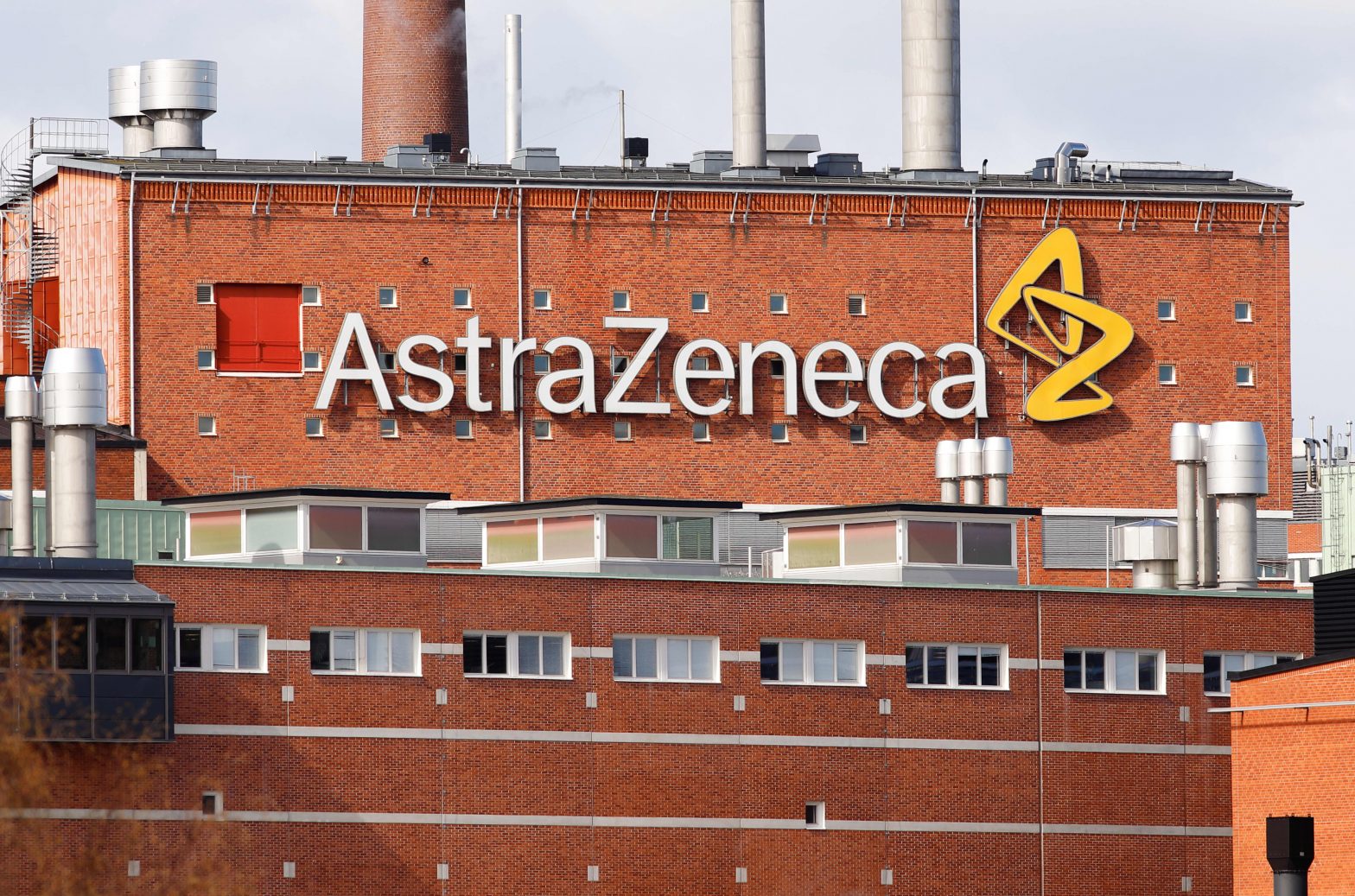Exterior view of the multinational pharmaceutical and biopharmaceutical company AstraZeneca production plant located at Snackviken, Sweden.
Roland Magnusson | iStock Editorial | Getty Images
The Food and Drug Administration authorized the first injectable monoclonal antibody cocktail for long-term prevention of Covid-19 among people with weakened immune systems before they have been exposed to the coronavirus.
The FDA issued an emergency use authorization Wednesday for AstraZeneca’s antibody cocktail, Evusheld, for what is known as pre-exposure prophylaxis, or PrEP, against Covid-19.
To date, such laboratory-produced antibodies have been authorized only as early treatment of Covid-19 or as preventive therapy for high-risk people immediately after close contact with someone who has tested positive.
Evusheld can be used as PrEP by people ages 12 and older who are moderately to severely immunocompromised and may not get adequate immune responses from a Covid vaccine. The therapy is also an option for the rare people who have histories of severe adverse reactions to a Covid vaccine or its components.
The AstraZeneca therapy involves getting preventive injections as often as every six months. According to a large placebo-controlled clinical trial, the cocktail is about 83 percent effective at preventing symptomatic disease during such an interval.
It’s unclear how the highly mutated omicron variant of the coronavirus — which is spreading in 57 countries, including the U.S.— might affect the efficacy of the monoclonal antibody therapy.
AstraZeneca’s scientists are testing Evusheld against the new variant, said Ruud Dobber, an executive vice president and president of the company’s BioPharmaceuticals Business Unit. They are optimistic about its efficacy against the omicron variant because both of the antibodies in the cocktail, tixagevimab and cilgavimab, target the virus’s spike protein in different and complementary ways.
Data are expected in the coming weeks, Dobber said in a statement.
Still, for many of the estimated 3 percent of U.S. adults who are immunocompromised, the long-awaited news that antibody PrEP has finally been cleared should bring profound relief.
“This new FDA authorization is a very important development for those with immunosuppression,” said Dr. Alfred Kim, a rheumatologist at Washington University in St. Louis.
Evusheld as PrEP, he said, “provides a healthy load of antibodies for the 40 percent to 80 percent of the immunosuppressed who have very poor antibody responses following SARS-CoV-2 vaccination.”
Immunosuppression is associated with a much higher risk of breakthrough coronavirus infections and severe Covid. Even after vaccination, many people — including transplant recipients and those treated for cancer or autoimmune conditions — have had to remain under lonesome lockdowns to protect themselves against Covid.
Janet Handal, 70, a transplant recipient from New York City, manages a Facebook patient advocacy group for fellow immunocompromised people that has nearly 900 members. Handal, hoping Evusheld will prove potent against the omicron variant, said PrEP will be transformative for her group’s members.
“We can rejoin life. We can rejoin our families. We can hug someone without fear,” she said.
Lucy Horton, an infectious disease specialist at the University of California, San Diego, said that Evusheld as PrEP can provide an additional layer of protection for the vaccinated and vulnerable but that it “should not be viewed as an alternative to or replacement of vaccine.”
PrEP candidates must test negative for the coronavirus. They also must not have had known recent exposures to infected people.
In the major clinical trial of Evusheld as PrEP, which has not yet been peer-reviewed, nearly 5,200 initially unvaccinated participants in the U.S. and Western Europe were randomized 2-to-1 to receive a single injection of Evusheld or a placebo. After a median six months of follow-up, the antibody injection had reduced the risk of symptomatic Covid-19 by 83 percent compared to the placebo, AstraZeneca said.
There have been no cases of severe Covid-19 or death related to the disease among those who got the antibody injection, compared to five severe cases and two such deaths in the placebo group.
The study participants are scheduled for 15 months of follow-up.
Seventy-five percent of the participants had health conditions that put them at risk of severe Covid, such as diabetes or obesity. Although only 3 percent were immunocompromised, experts have still expressed confidence that Evusheld as PrEP should be safe and no less effective among such people.
The federal government has an agreement with AstraZeneca to buy 700,000 doses of Evusheld, which will be available at no cost to eligible patients. The first doses should be available “very soon,” with all doses delivered in a few months, Dobber said.
While the drug is free to patients, health care facilities may charge to administer it, so people could still incur some out-of-pocket costs.
